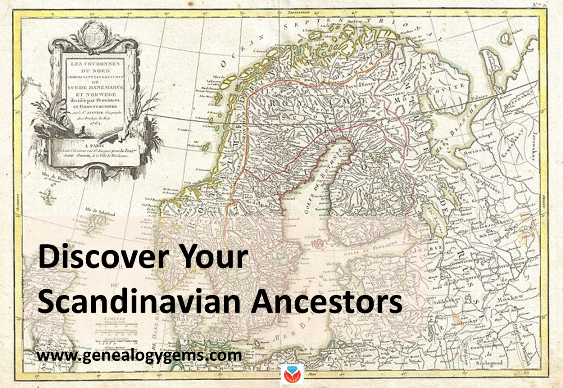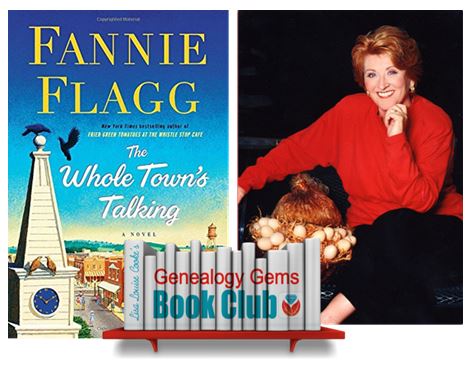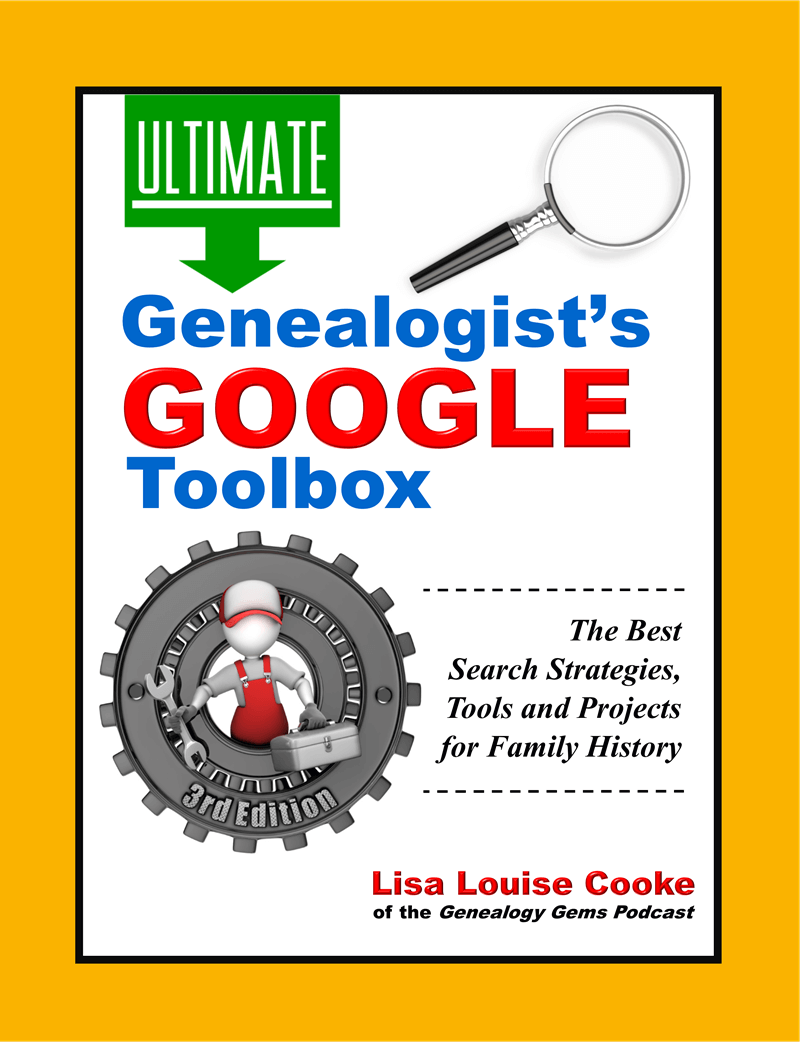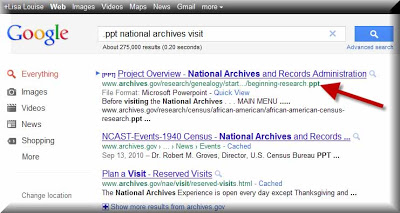Discover Your Scandinavian Ancestors in New and Updated Genealogy Records Online
Look for your Scandinavian ancestors in new and updated online Swedish marriage records, as well as population registers and vital records indexes for the Netherlands. Also: English parish registers, an Israeli collection for the Six Day War, and several U.S. collections: biographies, WWII draft registrations, Indian wills, Arkansas, Florida and Georgia.
Netherlands – Population Registers, BMD
In May, MyHeritage published major new collections for the Netherlands. Among them are indexes to civil births, marriages and deaths, as well as church baptisms, marriages and burials. You’ll also find their new Netherlands, Population Registers, 1810-1936 index, with more than 16 million records from population registers across the Netherlands. “Records typically list name, birth date, birthplace, residence date, and residence place. Sometimes an individual’s age, occupation, and names of their parents or spouse is also included.”
TIP: Use the source information given to go to browse-only collections of register images at FamilySearch (free) or Ancestry.com (subscribers or library users).
Sweden – Marriage records
Over 6.5 million records are in the new Ancestry.com collection, Sweden, Indexed Marriage Records, 1860-1943. According to the collection description, “records in this database were created by Statistics Sweden (SCB), a government agency established in 1858 that extracted and transcribed birth, marriage, and death information from Evangelical Lutheran Church in Sweden parish record books from 1860 to 1941.” You will likely find the names (including maiden name), dates of birth, gender and number of marriage for the bride and groom, along with dates and place of marriage. Later records may add more details: occupation, residence, nationality, religion and previous marital status. TIP: See the collection description for an explanation of Swedish naming traditions.
FYI–Ancestry.com’s Sweden, Indexed Death Records, 1840-1942 has also been recently updated (it’s now got 12.5 million records).
England – Parish Registers
Findmypast.com has recently posted the following new and updated parish records:
- Devon: Over 450,000 records are estimated to be among the 4,500 handwritten volumes of Devon parish baptisms, marriages, and burials now browseable at Findmypast.
- Plymouth and West Devon: Over 900 browse-only volumes comprising three centuries of parish registers from Plymouth and West Devon.
- Nottinghamshire: Over 580,000 records have been added to the Nottinghamshire Baptisms Index (1538-1917), in which you may discover “when and where your ancestors were baptized as well as their parents’ names and father’s occupation.” See also updates to the marriages index (1528-1929), burials index (1596-1905) and a small but new banns index (1600-1812).
Israel – Military
The Israel State Archives has released a digital archive from the Six Day War. According to an article at Arutz Sheva, the collection numbers over 150,000 pages and includes “minutes of 36 meetings of the Ministerial Committee on National Security from January-July 1967, Cabinet protocols and documents pertaining to the war from various ministries (Prime Minister’s Office, Foreign Ministry, Interior Ministry, Religious Affairs Ministry, Tourism Ministry, Justice Ministry, Housing Ministry and others), as well as sound and video files, still photographs and materials from the personal archives of Levy Eshkol, Yaakov Herzog, Aviad Yafe, Moshe Sasson and Rabbi Shlomo Goren.” Click here for the Six Day War Collection on the Israel State Archives website.
United States – Miscellaneous
- Biographies of Famous People: You’ve likely seen late 19th-century U.S. county histories with biographical sketches of prominent residents (perhaps you’ve even found your family among them). A national version of these “mug books” has been published and indexed on Ancestry.com. Appletons’ Cyclopedia of American Biography, 1600-1889 includes over 15,000 entries from annual volumes 1887-1889, with entries from most states. “Much of the information found within was compiled by either the subjects themselves or by their families,” warns the collection description. “Not all of the biographies found within the Cyclopedia may be accurate….Since contributors to the project were paid by space, there is speculation that the authors of the false pieces may have been financially motivated to add fabricated entries.” As always, use what you find to inform and guide your research: verify everything you can.
- Red Cross: Nearly 20,000 newly scanned photographs from the American National Red Cross collection are now online at the Library of Congress website.
- WWII draft registrations: Fold3 has added 21 new states or regions to its collection of WWII Draft Registration Cards. Draft registration cards are an excellent resource for determining where your family lived after the 1940 census; employer information, which can lead to business records or help you identify a relative in a city directory; and more.
- Indian wills: Ancestry.com has a new collection of U.S., Indian Wills, 1910-1921. According to the collection description, for a time, “the Probate Divisions of the Bureau of Indian Affairs were responsible for determining the heirs of deceased Indian trust allottees. Ultimately, Native Americans submitted more than 2,500 pages of wills and probate records to the Bureau. These records span the period 1910 to 1921 and, with a few exceptions, pertain to Indian families living in the Plains and several western states. Researchers will find members of the following tribes represented in this collection: Chippewa, Sioux, Apache, Shawnee, Quapaw, Assinboin, Leach Lake Chippewa, Confederated Flathead, Ponca, Cheyenne, Crow, Sac & Fox, Nez Perce, Southern Ute, Omaha, Osage, and more.”
- Arkansas: The Arkansas State Archive Newspaper Digitization Project has now digitized and indexed over 200,000 pages that will appear on Newspapers.com in June. Click here to learn more about this project.
- Florida: Flagler College (St. Augustine, Florida) has digitized its archive of yearbooks and photos, articles, college catalogs, and more. Now available to the public online
- Georgia: Now on the Georgia Archives is a digital version of its Bible Records Microfilm Index. These are images of the “card catalog (compiled by Georgia Archives staff) of the Archives’ holdings of Bible records on microfilm. The cards have been scanned and saved in PDF format.”
Got Swedish roots?
 Then you’ll likely enjoy our current Genealogy Gems Book Club featured title, The Whole Town’s Talking by internationally-bestselling author Fannie Flagg. It’s the story of two Swedish-American immigrants to the U.S., who find each other and marry after the man places an ad in a newspaper. Their dairy farm becomes the core of Swede Town, which grows into a classic Midwestern town. This novel is the multi-generational story of that town. Click here to learn more about The Whole Town’s Talking and The Genealogy Gems Book Club.
Then you’ll likely enjoy our current Genealogy Gems Book Club featured title, The Whole Town’s Talking by internationally-bestselling author Fannie Flagg. It’s the story of two Swedish-American immigrants to the U.S., who find each other and marry after the man places an ad in a newspaper. Their dairy farm becomes the core of Swede Town, which grows into a classic Midwestern town. This novel is the multi-generational story of that town. Click here to learn more about The Whole Town’s Talking and The Genealogy Gems Book Club.
File Search Trick, and Prepping for an Archive Visit
Podcast Listener Joan wrote me recently: “I get to spend a day at the National Archives. What should I do to prepare to take full advantage of the visit? I checked their website, but it was not as helpful as I hoped. Any suggestions?”
While this first resource is from the National Archives in the UK, it’s applicable to archives in other countries as well. Check out their video series called Quick Animated Guide.
Another good approach is to search for presentations on archive visits using Google. By conducting a ‘file type search’ in Google you can uncover presentations posted on the Web that are geared to doing research at the National Archives.
This little genealogy search gem can come in quite handy. Sometimes you know exactly what kind of file or document you are looking for online. By searching for the keywords of the subject and then adding .ppt (the file extension for Powerpoint presentations) Google will pull up only Powerpoint presentations that include those keywords.

Available in the Genealogy Gems Store
Great question Joan and have a wonderful time! Happy hunting everyone!

